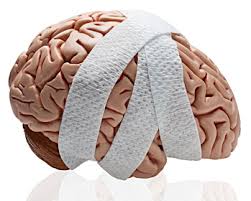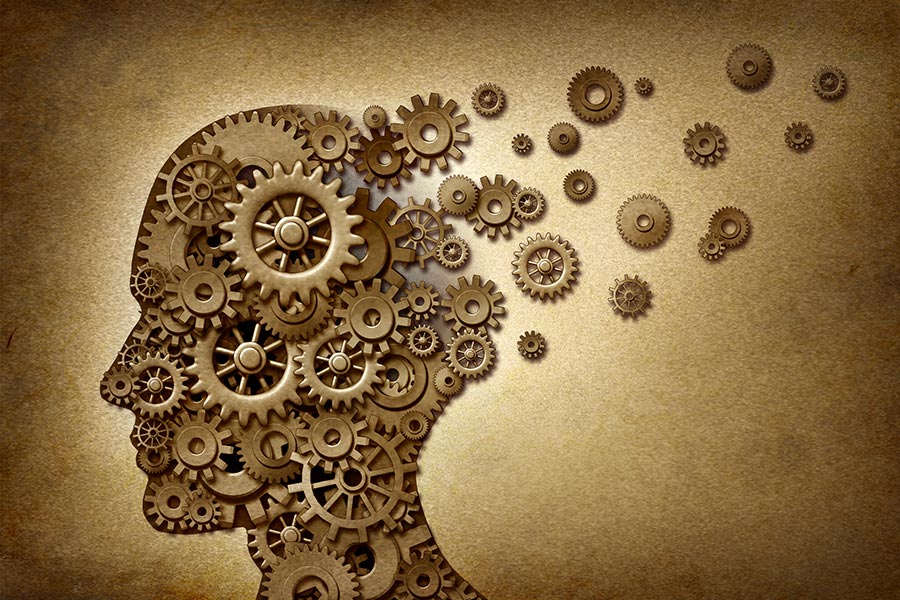Patient Wellness after Brain Injury
TBI and Mental Health

TBI’s can often cause emotional and psychological changes in behavior. These symptoms can be very confusing. A patient might feel elated and happy at one minute, and suddenly observe a drastic and rapid change in mood to aggressive or depressed. It’s important for the patient and their family/friends to know that brain injury could be the cause of these changes and some of the actions and feelings might not be within the person’s control.
Following are few examples of mood or behavior symptoms:
- Verbal outbursts
- Physical outbursts
- Depression or anxiety
- Apathy and Poor judgment
- Impulsive behavior
- Negativity
- Lack of empathy
- Intolerance
- Egocentricity
- Rigidity and inflexibility
- Lack of initiative
It is extremely important to know that treatment can help. Do not hesitate to seek help from a trained health professional who has expertise in psychological health and TBI. Joining TBI support groups also helps. Click here to find you nearest TBI support group.
Understand the Healing Brain

All brain injuries are unique. Whatever the cause may be, it is important to understand how the brain heals. Brain injuries can be incredibly difficult to deal with not only for survivors but also for the family and friends who are helping. Daily activities and simple tasks can become frustrating and stressful. Here are a few ways to help heal from a TBI.
- Rest
The brain has undergone a tremendous amount of stress. Just like any overworked muscle, it needs time to rest. Make sure to get plenty of good quality sleep and rest throughout the day.
- Meditation
meditation and yoga has several benefits, and when healing from something as traumatic as TBI, it can have an immensely positive impact. Focus on rhythmic and controlled breathing.
- Make notes
It’s is common to forget, write things down. This will help ingrain the idea or fact back into your memory and alleviate frustration.
- Limiting activities
It is important to be gentle and avoid physically demanding activities as the brain heals. Activities that require a lot of concentration can also slow your recovery. Take it slow and gradually increase your daily activities mentally and physically.
- Music
Music as therapy can help stimulate speech, movement and cognitive function.
- Support
Don’t be afraid to reach out to your family, friends or loved ones for help. Not only they help with daily tasks, but spending time with them may do nothing but help the process. Here are few helpful links that may aid in recovery.
What to Expect

It’s not just a bump on the head!
TBI patients are often misunderstood. TBI usually leaves a lasting emotional and psychological imprint on everyone. To help the patient recover, friends and family need to understand the changes in cognition and behavior that might arise in the survivors recovery phase. Compassion and communication are key, here are a few points that we like to give.
- TBI survivors get brain fatigue in addition to physical fatigue. A tired brain cannot think or analyze. They are not being lazy, patients just need a lot more rest than they used to. Patients might stop talking or ask to end a conversation abruptly. They are not being rude, but their brain just gets tired very quickly and very easily. Give them time to relax and recover.
- It takes a significantly long time for a brain injury to recover. Brain rehabilitation could take months to years. Do not expect a patient to get better and into their previous state as soon as they leave the hospital
- TBI survivors are often labelled as anti-social and uninterested after their recovery. They might resist going to social gatherings, be reluctant to participate in group conversations, or just become an introvert. Loud noises, multiple speakers, crowds, and any form of excessive input of senses tends to overload a recovering brain. Changes in behavior are just an indication to the inability of the overwhelmed brain to cope with stimuli. Limiting exposure and giving them a break is the best thing you can do. Shying away is not a behavioral problem, but a coping mechanism. It tends to get better with time.
- Cognition, mood, and stamina may fluctuate. Some days might be better than others. Do not push a recovering brain too hard, it might lead to setbacks in progress, or sometimes even illness. Give the patients time to string their thoughts together and construct a sentence. Do not talk to them in a condescending manner. Help them rebuild their memory and language skills at their own pace.
- If they seem stuck in processing and completing a particular task, try helping them by giving other suggestions and options. Getting flustered and taking over is not constructive and may even make them feel inadequate. TBI survivors have to learn things anew, like reading the clock or locking the door at night. Tasks that are ridiculously easy for you maybe daunting to them. Do not worry if you see them repeating a simple task again and again, though it might seem like obsessive compulsive behavior/disorder, repetition is just a form of enhancing their memory and learning. It might also be a hint to take a break.
- Cheer them on as they start over. Help and encourage their every effort. Do not be critical of their actions. Patients is the best form of support you can give. They are building new pathways in their brains. Allow them time to learn, grasp, and recover at their own pace. Encourage them to join a support group.
